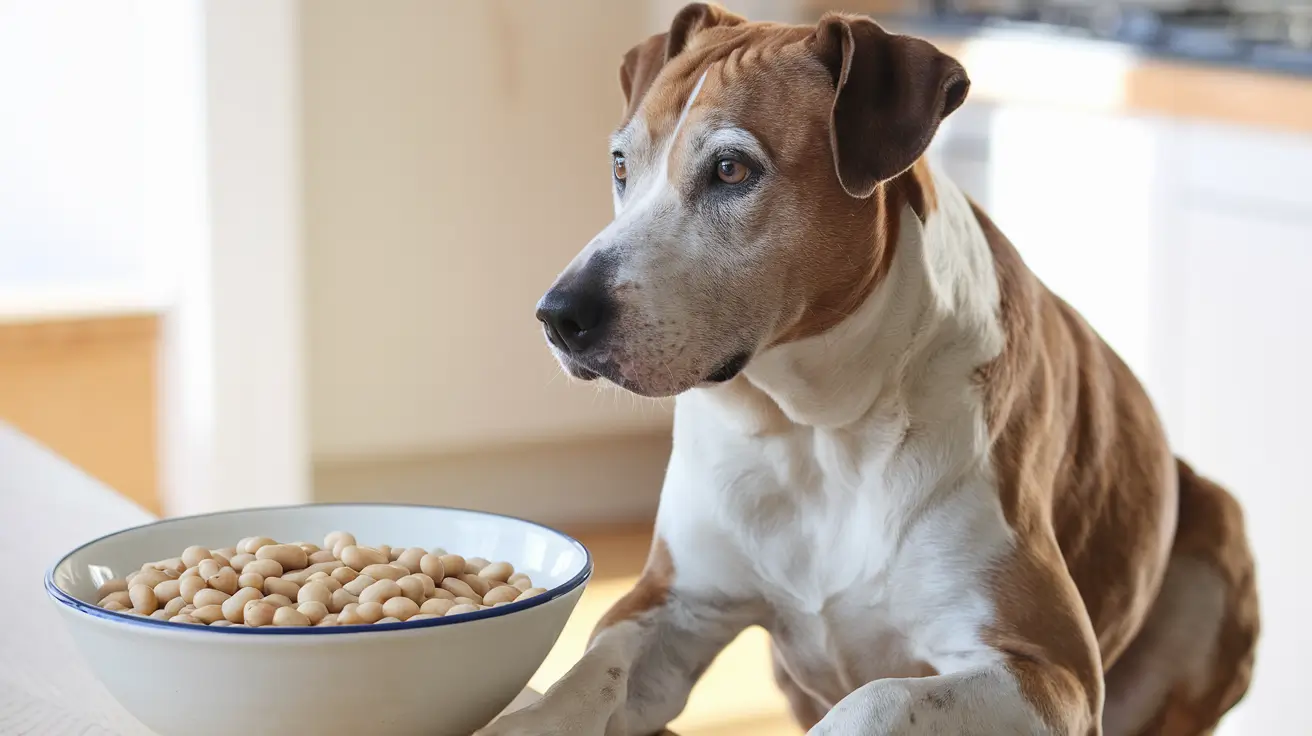Introduction: Understanding Canine Nutrition
A balanced diet is crucial for maintaining the health and well-being of our canine companions. While commercial dog foods are formulated to meet these nutritional needs, many pet owners wonder if human foods like beans can supplement their dog's diet. Beans, known for their protein and fiber content, can potentially enhance a dog's nutrition. However, it's essential to consult a veterinarian before introducing any new foods to your dog's diet, as individual health factors and dietary needs can vary significantly.
The Nutritional Value of Beans for Dogs
Beans are a powerhouse of nutrients that can benefit dogs when included in moderation. They provide more protein than grains, making them an excellent source of this vital nutrient. In addition to protein, beans are rich in fiber, which aids in digestion and helps maintain a healthy weight. They also contain essential vitamins and minerals such as iron, potassium, and magnesium, which support various bodily functions. These nutrients collectively contribute to a dog's overall health, making beans a potentially valuable addition to their diet.
Safe Types of Beans for Dogs
Several types of beans are safe for canine consumption and offer specific health benefits:
- Green Beans: These low-calorie snacks are high in fiber and packed with vitamins A, C, and K. They are a nutritious treat that supports a dog's vision and immune function.
- Black Beans: Rich in antioxidants, black beans are a good source of fiber and potassium. They help boost the immune system and maintain healthy digestion.
- Lima Beans: Known for their benefits to digestive health and weight management, lima beans are high in fiber and protein, keeping dogs feeling full longer.
- Pinto Beans: High in antioxidants, pinto beans support immune health and provide fiber and protein.
- Garbanzo Beans (Chickpeas): These protein-packed legumes must be cooked thoroughly before feeding to dogs. They are nutritious but should be given in moderation.
- Kidney Beans: While raw kidney beans are toxic, cooked kidney beans can be safe in small amounts. They are rich in protein, fiber, and antioxidants but should be fed sparingly due to phytohemagglutinin content.
Beans to Avoid: Potential Risks
Not all beans are safe for dogs. Certain types and preparations can pose health risks:
- Refried Beans: High in fat and containing harmful spices, refried beans can trigger pancreatitis in dogs.
- Baked Beans: These beans are often cooked with sugars and spices, making them unsuitable for canine consumption.
- Chili Beans: Similar to baked beans, chili beans contain extra sugar and spices that can upset a dog's stomach.
- Canned Beans: While convenient, canned beans are high in sodium, which can lead to health issues, particularly in dogs with heart conditions or high blood pressure.
Preparing Beans for Your Dog
To safely prepare beans for your dog, cook them thoroughly and avoid adding any harmful ingredients like salt, garlic, or onions. Opt for dried beans over canned varieties to control sodium intake. Soak dried beans overnight and cook them until soft. Plain, cooked beans are the best option, ensuring they are free from additives that could harm your pet.
Moderation is Key: How Many Beans Can Dogs Eat?
When introducing beans to your dog's diet, moderation is crucial. Overconsumption can lead to digestive issues such as gas or diarrhea. Start by adding small amounts of cooked, plain beans to your dog's food and monitor for any adverse reactions. Adjust the quantity based on your dog's size and tolerance, and always consult your veterinarian for personalized advice.
Additional Nutritional Benefits of Beans
Beans offer more than just protein and fiber; they are rich in essential vitamins and minerals that support a dog's health:
- Vitamin A: Supports vision and immune function.
- Vitamin K: Essential for blood clotting.
- Folate: Important for metabolic processes.
- Manganese and Potassium: Critical for enzyme functioning and nerve impulse transmission.
By incorporating beans into your dog's diet, you can provide a nutritious and healthy snack that complements their regular meals.
Conclusion: Consulting Your Veterinarian
Before making any dietary changes, it's vital to consult with your veterinarian to ensure the safety and well-being of your dog. Each dog has unique health needs, and professional guidance can help determine the best approach to introducing beans into their diet. By considering your dog's individual requirements and following safe feeding practices, you can enhance their nutrition and contribute to their overall health.






